Soul Boom: Why We Need a Spiritual Revolution
Written by Rainn Wilson
Published by Hachette in hardcover, ebook, and audiobook
“Let me be blunt with you, dear reader. I know what you might be asking right now: ‘Why the hell is the actor who played Dwight on The Office writing a book on spirituality?’”
Rainn Wilson, known to Trek fans as Harcourt Fenton Mudd on Star Trek: Discovery (and Short Treks), as well as Lahnk in Galaxy Quest, or Frank Darbo in Super, believes that modern Western society is suffering from a plethora of pandemics, and he believes that the core solution can be found in two television shows from the late 1960s and early 1970s: Kung Fu and Star Trek.
As with all of us, Wilson the man is more than just what those on the outside see of him through his work. The actor went through a crisis of despair, addiction, depression, and suicidal thoughts in his 20s and 30s that brought him to a personal rock bottom, and his way out was found with the assistance of 12-step recovery groups and a personal spiritual search that led him to study the sacred texts and practices of a large number of religious and spiritual traditions from around the world, studying with Native American shamans, Buddhist monks, Christian priests, and many more. His quest ultimately led him back to the faith of his youth – the Bahá’í religion but with a broader understanding of spirituality, and an approach to faith that was more about asking good questions than about settling dogmatically on specific answers.
Wilson believes that the greatest threat of our time is a crisis of despair, brought about by a series of ongoing parallel pandemics that Western society is losing the resources to combat. These pandemics include drug addiction, anxiety, and depression, suicide, loneliness, isolation due to social media, racism, sexism, materialism, unjust economic extremes, nationalism and materialism, and climate change. Wilson does not believe that piecemeal political or cultural solutions can fully address the root causes of these overlapping pandemics, and instead points to a solution that is both ancient and ever-fresh: he says we need a spiritual revolution, a revolution that borrows its approach from the stories of Kwai Chang Caine (played by David Carradine in Kung Fu) and Captain James T. Kirk (played by William Shatner in Star Trek).
Kung Fu presented its protagonist with a series of dilemmas, week after week, which could only be solved by personal growth along his own spiritual path. At its core, Wilson argues, Kung Fu was about personal spiritual transformation. In contrast, Gene Roddenberry’s Star Trek presented its protagonists with a series of dilemmas, week after week, which could only be solved by a diverse crew, working together to better the common condition of humanity. Wilson believes that a modern spiritual revolution must involve both personal inner transformation and an abiding commitment to the betterment of our common world.
There’s a lot to unpack in Soul Boom. Wilson peppers his text with quotations from religious and irreligious luminaries from throughout human history, talking with humor, intelligence, and compassion to committed religious believers, to apathetic skeptics, and to fervent nonbelievers alike. Along the way, he addresses the problem and possibilities of death, the God question, theodicy (the problem of why evil exists), the nature of the sacred, the thorny issue of religion(s), and many more potentially-divisive topics. But Wilson believes that all the good beliefs and believers (and skeptics and atheists) in the world have certain common, shared values and principles, and that attention to these commonalities, which he describes as a higher power, life after death, the power of prayer, transcendence, community, a moral compass, the force of love, increased compassion, service to the poor, and a strong sense of purpose, can lead humanity to spiritual and communal health. He even proposes creating a new religion out of these principles – he calls the religion “SoulBoomTM” – that he believes can heal our “broken blue marble” and guide us into the future.
If that sounds awfully grandiose, it kind of is, though Wilson takes care to puncture his perceived pomposity with frequent admissions of his own inadequacy as a religious guide. And if the description of his new religion sounds a lot like the tenets of his own faith, Ba’hai, at least Wilson recognizes and acknowledges that fact. It is sort of a given that if you go through the world’s religions, picking what you like out of each one and discarding what you don’t, what you end up with will always appear as though all religions are basically the same. In that case, you are the organizing principle. Of course, the proponents of each religion might well disagree with your choices of what’s important and what’s not in their faiths. But what Wilson has going for him are his wide reading, study, and practice, his cheerful optimism, and his willingness to concede that he might be wrong.
Trek fans, whether religious, spiritual, or not, will find much to enjoy in this book, as Wilson ties many of his points to examples from Trek series ranging from the ‘60’s to today. Atheists and agnostics will find some of their questions discussed with integrity and respect, and others of their questions dismissed quickly out of hand – and adherents to many of the world’s faiths will have much the same experience. But Wilson is an engaging and intelligent conversation partner, and it is probably best to see this book as an invitation to dialogue, rather than an airtight prescription for everyone.
Bottom line? Soul Boom is a fascinating, friendly, funny entry point to some of the most important and vexing questions facing human beings of any century. Wilson treats his conversation partners with respect, and even the deepest of his discussions is made with a twinkle in his eye. It’s a book that’s worth reading, especially if you agree with his diagnosis of modern society and its ills.
Available Now
Rainn Wilson’s Soul Boom: Why We Need a Spiritual Revolution was released on April 25. You can pick it at Amazon in hardcover for $17.25 and Kindle eBook for $16.17.
It is also available as an audiobook at Amazon on CD and Audible, read by the author.
Bonus Video
Last week Wilson did a virtual TED Talk about the book, talking about spirituality and Star Trek.
Denes House is a lifelong Star Trek fan, Fleet Chaplain for Starfleet Command Quadrant One, a nationwide fan club, and serves as the Senior Pastor of New Beginnings C&MA Church in Poughkeepsie, NY.
Find more news and reviews of Star Trek books at TrekMovie.com.
DISCLAIMER: We may link to products to buy on Amazon in our articles; these are customized affiliate links that support TrekMovie by earning a small commission when you purchase through them.

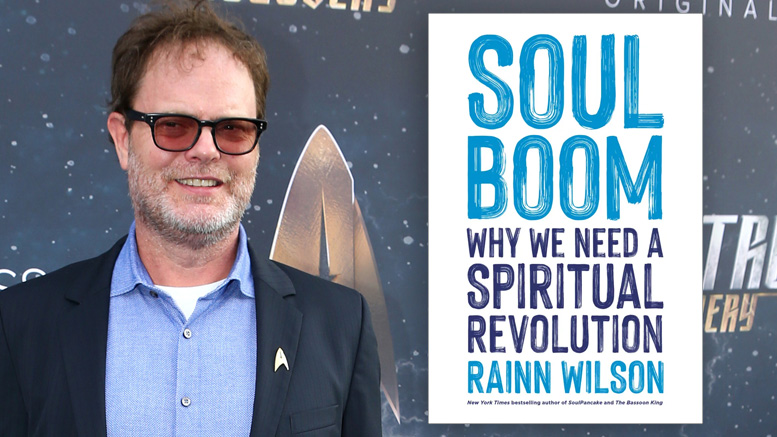
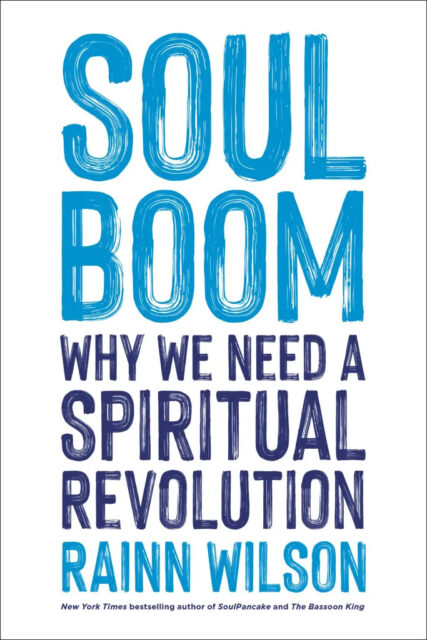

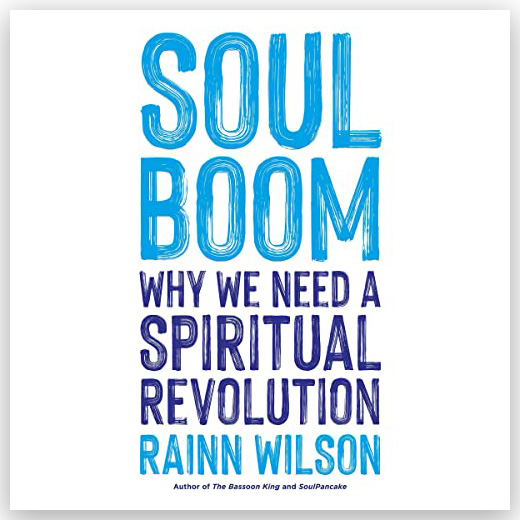

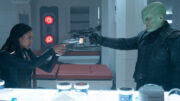
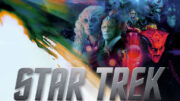
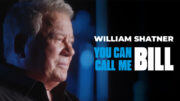
Yep…. this is gonna go over well.
I usually avoid this type of non-fiction, but this intrigues me.
“he calls the religion SoulBoomTM”
A trademark symbol has no legal meaning unless wielded by the actual trademark holder, and thus should not be included here. There is never a reason for journalists to use it in an article, and it’s proper practice for them not to do so. They mean nothing if a journalist uses them since the journalist doesn’t own the term or item being trademarked. The only time the symbol has any legal weight at all is when it’s used by the trademark owner, either on their own website or in their own marketing materials. In article? Never.
A boring Holiday weekend at the Dune household? ;-)
PS: I did do a Trademark search, and Wilson has trademarked, “Soul Boom.” (so it’s a pretty boring weekend at my household as well…lol). But I understand your correct point about journalists not needing to use it.
The “TM” is Wilson’s own usage, and appears to be a tongue-in-cheek thing in the text, rather than a legal thing.
It has to be a little frustrating to go on a national television show to talk about spirituality and improving your life and feeling blessed and happy, to then be asked about someone watching reruns of the Office on an airplane.
Rainn Wilson was giving a TED talk on this. I’ve not finished it yet, but it does parallel several points of the review. I’ll make it a point to finish it up.
It may force a conversation about the societal construct of the Federation. TNG Trek suggests humanity has jettisoned faith/spiritual pursuits, but seems tolerant of them in other races. Picard has lectured on a few occasions that humanity working to “better itself” seems to have been the cure to solve the societal ails. People do look to understand meaning, that their efforts matter, making a difference. It’s hard to imagine that just “getting busy” answers that spiritual question…
I went to see Rainn talk about the book in NYC (with moderator B.J. Novak, which was fun) and was intrigued. Picked up the book that night but my son has it and hasn’t passed it along yet, but I’m looking forward to reading it. I liked a lot of what he said that night.
To be fair, even theocracies have never achieved utopian conditions, thus my skepticism remains in tact. Spirituality is an individual pursuit, not the means to a universal truth, the common blind spot that escapes almost all spiritual people. So if one person found what they were missing, great, but results will vary for everyone else.
That said, I heard about this book a while ago and was intrigued to learn a new perspective. This review was a good reminder to expand my reading list.
A couple of weeks ago, I was surprised to hear myself tell a friend that Star Trek was my religion, but once I thought about it, I realized that it made sense. It was a moral guide during my adolescence, it gives me inspiration, and it encourages me to care about others and about the problems we all face. I can’t wait until the next time I fill out a form that asks for my religion, so I can put “Trekkie” in the box. :-)
And no, I’m not joking.
If Trek is indeed a religion then the faithful of late have taken a depressingly familiar path, as few in fandom these days can even manage to agree on what it’s all supposed to mean. That was not the case during the Seventies when Roddenberry gave lectures before college audiences who cheered him and the show for what were widely seen as its progressive values, but that was long, long ago.
That said, I was also always struck by the parallels between TOS and “Kung Fu,” with its heartfelt (if naive) weekly appeals for enlightenment and simple human decency. For all the artistic strides it’s made over the decades, television could do worse than to once again suggest to audiences that such values may yet prevail.
I’m an old fan, so I still have those Seventies thoughts and feelings. :-)
I’ve never seen Kung Fu; maybe I should check it out…
Hard to imagine how you got through the early ‘70s without seeing David Carradine spout Buddhist pacifism whilst kicking ass at least once. Like TOS it’s very much a show of its time, the now laughable fight choreography being the equivalent of plywood sets and primitive VFX. Gene Coon wrote for it, though I don’t know if they share much DNA beyond that. Also like TOS, the third and final year mostly sucked.
Thanks for the description of Kung Fu. I adore TOS, so being a show of its time isn’t necessarily a drawback for me. :-)
Basic tenants of most spiritual pursuits are free will and ‘do no harm’. One might think they wouldn’t be contradictory, but they are. Even the logical Vulcans, during mating season, would kill.
Good for him for finding a healthy way through his addiction
Trademark your “Religion” … seems legit
He has a sense of humor, and a lot of what he does is tongue in cheek.